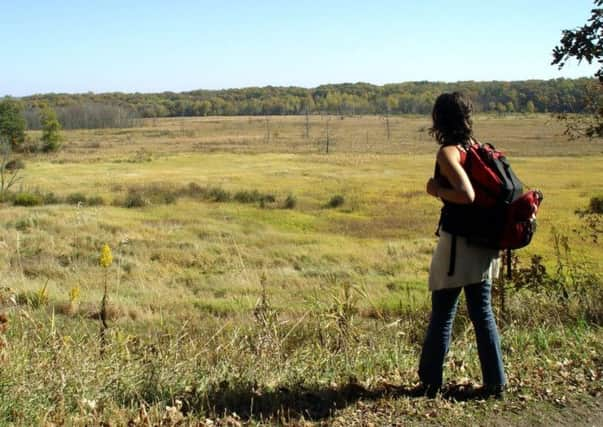Planning for the trip of a lifetime


IT’S that time in your life – you’ve just done your A-Levels, or finished university and you’re ready for a break.
You decide you’re going to take a year out, a decision that fills you with wide-eyed excitement and your parents with dread. Gap years have become increasingly popular in the UK and each year more than 200,000 students head overseas, either to volunteer for aid projects or simply backpack around exotic places.
Advertisement
Hide AdAdvertisement
Hide AdFor the vast majority it is a memorable experience that stays with them for the rest of their life, but sometimes it can go wrong. In 2002, Caroline Stuttle, a 19-year-old student from York, was murdered while backpacking in Australia, while six years ago five Britons, including four teenage students on a 16-week project in Ecuador, were killed when their bus was hit by a lorry.
Although such tragedies make the headlines they are, thankfully, extremely rare. Even so travelling abroad, whether you’re on a gap year or not, isn’t without its risks. According to the Office for National Statistics (ONS), British consular staff gave assistance to more than 19,000 Britons in 2012/13 and 28,569 passports were reported stolen. On top of this there are the countless assaults, thefts and other unreported incidents that happen every day.
Richard Goodey runs Lost Earth Adventures, a York-based adventure tour operator, with his partner Sarah Allard. They have launched a gap year planning and safety course aimed at helping young travellers and allaying parents’ fears.
The course is primarily about safety although rather than put people off, Richard and Sarah – who have more than 20 years’ experience of exploring some of the more remote corners of the world – want travellers to make the most of their experience.
Advertisement
Hide AdAdvertisement
Hide Ad“The most common problems are petty thefts and people losing passports on buses and trains, along with things like muggings. But in some cases you can end up walking straight into a war zone,” says Richard.
He says it’s important to be prepared. “Sometimes people sign up to go white-water rafting or rock climbing, but the organisers aren’t necessarily trained to international standards. Nine times out of 10 you’ll be all right but it’s worth checking them out beforehand.”
Sometimes it’s a case of using a bit of common sense. “In the UK we’re used to booking something and turning up and everything being done for us, but if you’re in Africa or India then you’re responsible for yourself and in our courses we try to encourage people to be more assertive,” he says. “If you’re in a taxi abroad and the driver’s driving like a lunatic then you don’t have to just sit there, you can ask him to slow down or tell him to stop.”
The courses are geared more to those aged between 18 and 25. “The younger generation tend to be a little less aware and more gung-ho. They have the view that everything will be all right, whereas older, more experienced travellers are usually more clued up,” he says.
Advertisement
Hide AdAdvertisement
Hide Ad“People go on a bus and put all their heavy stuff in a rucksack in the baggage area and keep all the important things, like their iPod, passport and money, in their holdall. They use it as a pillow and fall asleep and it might fall on to the floor and someone steals it. They then wake up in the middle of nowhere and they’ve lost everything.”
Which is why it’s important to make provisions. “It’s worth keeping a secret stash of money in your socks, or you can stitch $100 into a jacket, just so you have something in case of an emergency.”
As more people take time out to travel so destinations have changed. “Twenty or thirty years ago people would go backpacking around Europe but now they tend to go to more far-flung places with Thailand and Australia being the most popular.”
But this can create its own problems. “I’ve met a lot of women who went to India and said men would come up and grope them, which can be very intimidating.” Such behaviour can’t be condoned but he says it’s important to be aware about the fact that it can happen.
Advertisement
Hide AdAdvertisement
Hide AdWhich comes back to being properly prepared. “The most important thing is to do your research because gap years are a great way of learning about new cultures and seeing how the world works.”
The Lost Earth Adventures gap year planning and safety courses cost £89 per person. They are held in York (Feb 8 and 9), Leeds (Feb 15 and 16) and Sheffield (Feb 22 and 23). For more information call 01904 500 094, or log on to www.lostearthadventures.co.uk